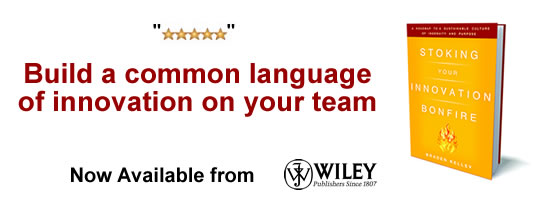Government has a big Role to play in Innovation
 Steve Jobs announced the iPhone to the world on 9 January 2007. This iconic product became a sensational success and propelled Apple to become the most valuable company on Earth. It created a new product category, the smartphone, which has become the must-have item for people in all nations. It launched a platform for secondary markets in apps, music and videos. Steve Jobs, Sir Jonathan Ive and the design team at Apple deserve the tremendous credit they get for this seismic innovation. But as the economists, Marianna Mazzucato and Tim Harford, have shown, the iPhone could not have been a success without at least 12 technology innovations on which it is dependent.
Steve Jobs announced the iPhone to the world on 9 January 2007. This iconic product became a sensational success and propelled Apple to become the most valuable company on Earth. It created a new product category, the smartphone, which has become the must-have item for people in all nations. It launched a platform for secondary markets in apps, music and videos. Steve Jobs, Sir Jonathan Ive and the design team at Apple deserve the tremendous credit they get for this seismic innovation. But as the economists, Marianna Mazzucato and Tim Harford, have shown, the iPhone could not have been a success without at least 12 technology innovations on which it is dependent.
These include:
- Tiny microprocessors
- Memory chips
- Solid state hard drives
- Liquid Crystal displays
- Lithium based batteries
- Fast Fourier transform algorithms
- The Internet
- Http and Html
- Cellular networks
- Global positioning systems (GPS)
- Touch Screen
- Siri
The remarkable thing which Mazzucato points out is that all these technologies were initially funded partly or wholly by government (and usually defence) agencies.
For example the internet was based on the Arpanet developed by US military sites in the 1970s. The worldwide web owes its existence to the work of Tim Berners-Lee who developed the idea of hyperlinks while at the CERN research centre which is funded by European governments. GPS was developed by the military for the military. Fast Fourier transform routines enable analogue signals such as sound and video to be quickly digitised. They were originally developed by the American mathematician John Tukey while he was working in Defence applications at the height of the cold war when Kennedy was President.  Touch Screens were first researched by E A Johnson, a British Scientist working for the Royal Radar Establishment. In 2000 the US Defence advanced research agency DARPA commissioned Stanford to work on a voice activated artificial intelligence agent, the predecessor to Siri, to help military personnel. Similarly tiny microprocessors, memory chips, sold state hard drives, lithium batteries and liquid crystal displays all enjoyed a large element of government funding – often with military uses in mind.
No-one is claiming that governments or defence agencies created the iPhone. We have private enterprise to thank for that. But governments funded the essential underlying research and initial developments of just about all the key components. And governments carried the risk of that research and development.
We tend to underplay the role that government decisions and government dollars have played in the success of many of today’s technology product and companies. We should recognise that government has been an important sponsor in furthering innovation in the past and will continue to be in the future. We need continued government support for fundamental scientific research to underpin future innovations from a future Steve Jobs.
References
- Mariana Mazzucato – The Entrepreneurial State
- Tim Harford – 50 Things that made the Modern Economy – BBC podcast
Wait! Before you go…
Choose how you want the latest innovation content delivered to you:
- Daily — RSS Feed — Email — Twitter — Facebook — Linkedin Today
- Weekly — Email Newsletter — Free Magazine — Linkedin Group
 Paul Sloane writes, speaks and leads workshops on creativity, innovation, and leadership. He is the author of The Innovative Leader and editor of A Guide to Open Innovation and Crowdsourcing, published both published by Kogan-Page. Follow him @PaulSloane
Paul Sloane writes, speaks and leads workshops on creativity, innovation, and leadership. He is the author of The Innovative Leader and editor of A Guide to Open Innovation and Crowdsourcing, published both published by Kogan-Page. Follow him @PaulSloane
NEVER MISS ANOTHER NEWSLETTER!
LATEST BLOGS
Three things you didn’t know about credit cards
Photo by Ales Nesetril on Unsplash Many of us use credit cards regularly. From using them for everyday purchases to…
Read MoreFive CV skills of a business-minded individual
Photo by Scott Graham on Unsplash The skills listed on a CV help employers quickly understand your suitability for a…
Read More


